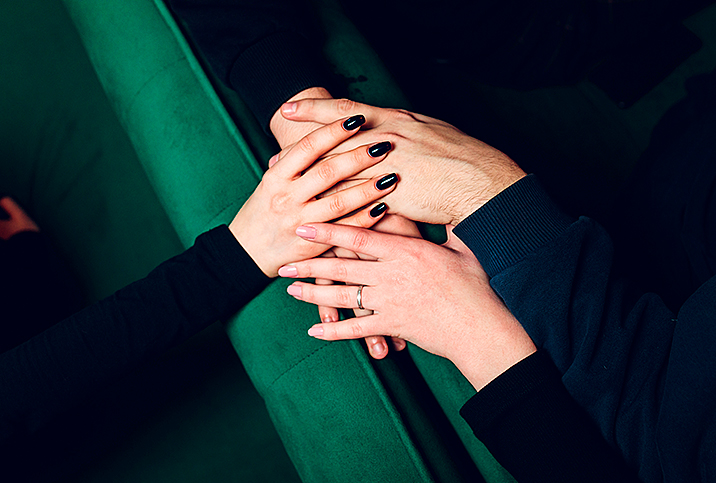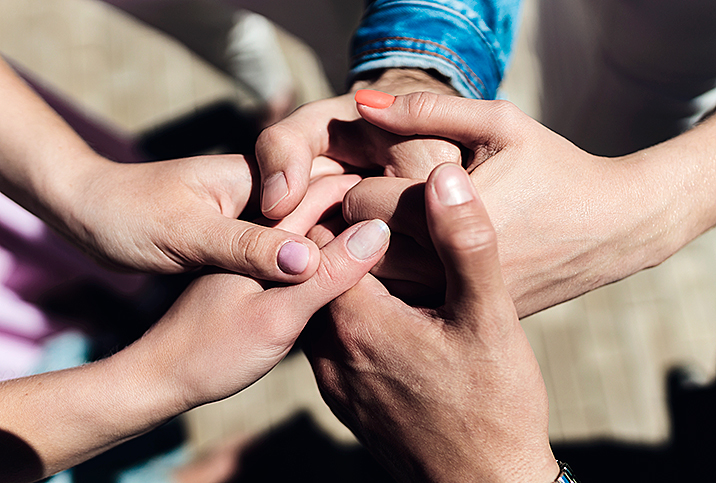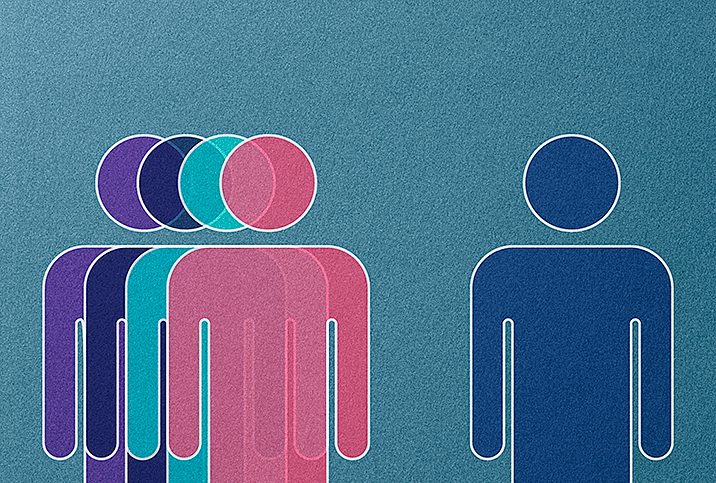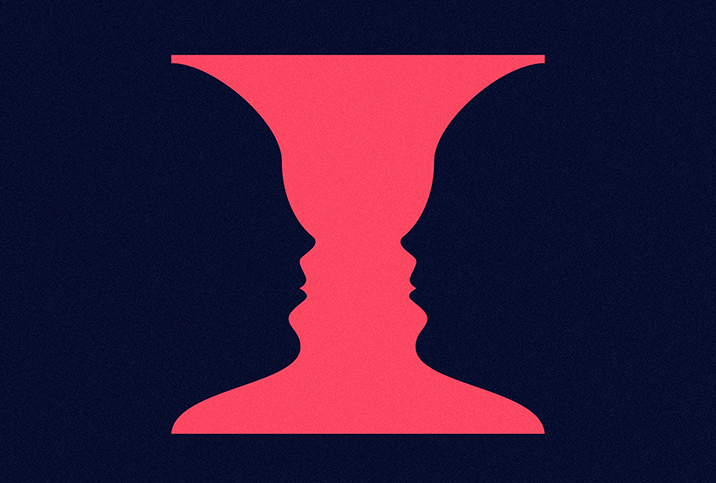Do Poly People Really Have It Best?

"When a client first comes to me, I tell them that polyamory is really hard and uncomfortable, and that's normal," said Cassandra Lange, a poly queer and kink-affirming therapist based in Buffalo, New York. "You can't get out. So try just being really honest with yourself and your partners so they can support you."
Polyamory is a difficult road because it requires all the core values needed to make any relationship successful: honesty, vulnerability and authenticity. All these values require self-reflection. One has to learn to sit and identify their needs and beyond that communicate them, which is critical because in a polyamorous relationship, you're not just communicating with one partner but sometimes two or three or more.
"There is a saying in the poly community: Just communicate, communicate, communicate," said Stephanie Sullivan, therapist and polyamory coach. "That's the No. 1 rule and that's a skill. It's a skill not everyone has always."
Sullivan likes to think of polyamory as the same as every other relationship with the same structure, but with more moving parts.
Learn how to self-regulate
It takes time to learn how to work through these moving parts. This is where a very useful skill comes in. Called self-regulation, it helps us manage and experience our emotions in a healthy way.
Polyamorous individuals have to learn to self-regulate their emotions in a way monogamous people are rarely taught. For example, many polycules have to teach themselves how to regulate their own jealousy—contrary to popular belief, yes, poly folks do get jealous—in a constructive way.
"It's a misconception in our society that relationships are easy," Lange explained. "Some relationships can seem easy, but each has its struggle. It's important to know how to move past that conflict."
The struggles of being polyamorous
Despite polyamory gaining popularity in recent years, there are a number of struggles and challenges poly folk face.
In a society where cis hetero-normative monogamy is the standard, polyamory is looked at as unnatural and often not accepted as a legitimate way to have relationships. But this is far from the truth.
"This is a natural process," Sullivan said. "Parents can love both of their children. Just because you love one child doesn't mean you would not love the other child. In the same way, children attach to both of their parents when they are growing up, and then to a coach, teacher or peer group."
She thinks of polyamory in the same way, where people attach themselves to others differently.
"Also, just because you're giving love to one person doesn't you mean you love the other person less," she added. "Our time and our energy are limited resources that we share with people we love, and love can be an infinite resource, itself."
Sullivan explained these myths come from all the various messages we receive as we're growing up. Mass media promotes the Disney princess and prince and the happy nuclear family, and anytime someone is depicted in a relationship with a person other than their main partner, it's typically portrayed as a shameful affair.
"It's always Jasmine who finds Aladdin. It's Beauty who finds the Beast. And you find your happy-ever-after finding the one," Sullivan said. "But that's not the end of the story. A lot of these insecurities come from being the one. If I'm not the one, and the one is the thing, then I'm not good enough. It's like an identity crisis."
While polyamory embraces having more than the one, it also unpacks the idea of being the one. Polyamory allows for greater exploration of emotions, offering diversity in connections and more abundant support for a relationship.
However, polyamory also means we have a lot of unlearning to do.
More acceptance and representation
Not all of the potential positives associated with polyamory are met without consequences. Often, poly folk can lose family and friends due to their decisions. This is not an easy choice to make and there is often a grieving process. A lot of polycules just prefer not being open about their relationships because they fear alienation and, at the end of the day, we all want acceptance from a larger community.
Sullivan, who has often worked with people in mono-poly relationships, noticed how even the monogamous partner often fears how people are going to perceive them. She said, "Even if they are totally on board with their partner, the external or societal reaction can be a barrier to acceptance."
"The truth is that most of the time it's not a big deal. Polyamorous folks are not being laid all the time or have multiple partners. Media can often sensationalize it and make it about group sex and threesomes. Poly people's lives are like everybody else's," Lange said.
'People repress a lot of feelings, connections that don't fit either into platonic or sexual [relationships], but there are so many ways we can connect with each other and we push that down.'
Both Lange and Sullivan encourage people to look at the shame they feel about sex and to instead think of it as a healthy and natural part of their lives. People are diverse and will find different ways to connect, and it should be completely valid to want to have sex with many people as a form of connection. Sullivan noticed that poly people often try to avoid talking about sex, to unconsciously offer legitimacy to their relationships in front of other people, who often think that poly people only choose their lifestyle for sexual satisfaction.
"People repress a lot of feelings, connections that don't fit either into platonic or sexual [relationships], but there are so many ways we can connect with each other and we push that down," said Lange, who herself has come out about her own polyamory practice on her website and is glad to share that part of herself.
Few therapists have her experience.
Sullivan also gets a lot of clients in her practice who feel they had previously devoted their time and money in therapy to explain and educate their therapist on what polyamory really is rather than getting help. Feedback Sullivan gets often revolves around untrained professionals telling clients that the reason they are coming to therapy or are depressed is that they are polyamorous.
And if that's not enough, Lange points to a lack of legal protective measures in our system for poly people.
"Polycules don't have legal protection in the United States," she said. "If there are more than two partners raising kids, the third person doesn't have parent privileges, and you certainly won't get the same protection or privileges as other married couples do. [For example], a partner dies and you won't be able to deal with the legal estate."
We still have a long way to go in gaining acceptance and representation for poly people. But as the popularity of polyamory in the U.S. grows, this is something we all need to strive for.
So no, polyamory is not as easy as it looks.




















